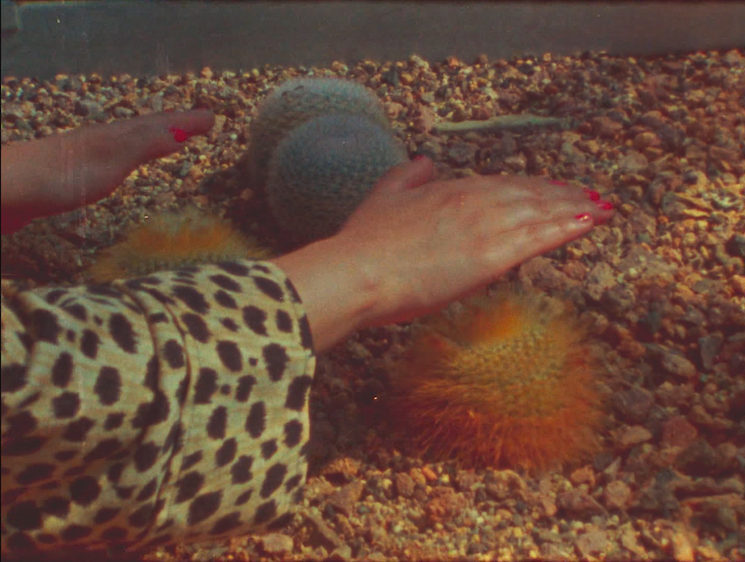Floraphilia. Revolution of plants
Exhibition at the Temporary Gallery in Cologne

In Cologne, in the Temporary Gallery / Zentrum für zeitgenössische Kunst, on 6 March will be held opening of the exhibition “FLORAPHILIA. Revolution of plants”. The project curated by Aneta Rostkowska was shown at Biennale Warszawa last autumn. Exhibitions in Warsaw and Cologne constitute parts of a broader project: Floraphilia. Plants as Archives Continued in various locations with the participation of international partner institutions: in Berlin in cooperation with Savvy Contemporary, in Aalst with CIAP Kunstverein and Netwerk Aalst and in London as part of the Critical Ecologies research at the Goldsmiths, University of London.
It is striking how popular the hobby of growing plants has become in recent years. Instagram is filled with photos of interiors decorated with potted plants (succulents seem to be particularly well liked), new blogs devoted to plant care crop up almost every day, and urban gardening is constantly on the rise. What is the reason behind this increased interest in the domesticated natural world? In his essay “On Lyric Poetry and Society”, Theodor W. Adorno claims that nature becomes sacralized because of the individual’s alienation in a capitalist society, causing him or her to seek a place of escape. What is more, the prestige of nature increases in periods of political disaster, when hopes for a revolutionary societal transformation have been let down. Nature becomes an area in which the alienated individual finds a relief. While it does not eliminate the underlying cause of the poor mental state, contact with flora calms one down.
Yet is such a vision of nature – as a completely depoliticized means of improving our mood, a perfectly functioning consumption object – the only one we have at our disposal? Definitely not! The exhibition “Floraphilia. Revolution of plants” frees the world of plants from the reactionary context of interior design magazines and eco-trends, revealing its emancipatory potential leading to social transformation. The space of CCA Temporary Gallery will turn into an anarchist laboratory of the revolution-to-come, which will become possible through interspecies exchange. Plants decorating our shelves and window sills will transform into sources of inspiration for political activity. We are fascinated by their resilience, adaptability and communication skills as well as their indifference to state borders. For instance, the Canadian goldenrod instils in us an element of disobedience, the Japanese rose teaches us to evolve in line with our surroundings, while the calamus turns into a symbol of renewal and purification. Plants are community beings by nature – not individuals forming clear boundaries from one another. Their identity is deeply pluralistic: from roots that are a source of decentralized intelligence to dependency relationships that tie them to other organisms. Does it not seem like a panacea to contemporary individualism?
What follows is a questioning of the common understanding of plants as mechanical “things” that react solely to simple stimuli. Plants leave the lowest position in the hierarchy of beings, leading us to a vision of a fundamental continuity between humans and plants, the latter of which – dynamic, breathing and growing – are endowed with intentionality and even memory.
The unique architecture of the exhibition strengthens the ritualistic, communal and scientific themes present in the artworks. Tables covered with cloths, like altars, emphasize the need to go beyond the instrumentalization of nature based on the disenchantment of reality: selected religious or shamanic beliefs go hand in hand with the discoveries of modern science, showing plants as much more complex organisms than it could seem. Tables and chairs encourage visitors to spend more time in the exhibition space: see the works, read the publications, and talk about them with other visitors. It is an attempt to introduce a different type of temporality into the exhibition space, one that would be closer to the slowly developing world of plants and in opposition to the usual practices of viewing exhibitions. The exhibition space constructed in such a way also brings to mind a meeting place of a mysterious sect, which sees the practices of observing and examining plants as the beginnings of a future revolution.
A special edition of the SURPLUS project will also be present: the artist Magda Buczek digs into discourses, lifestyle trends and modern ecologies to fish for new semantic fetishes concerning the world of flora. Her slogans are printed on used garments in a limited edition of ten.
| Data | Czas | Tytuł | Miejsce | Wstęp |
|---|---|---|---|---|
|
March 6 2020
, 19:00
Friday
—
September 20 2020
Sunday
|
19:00 |
Floraphilia. Revolution of plantswystawa
|
Temporary Gallery, Cologne |